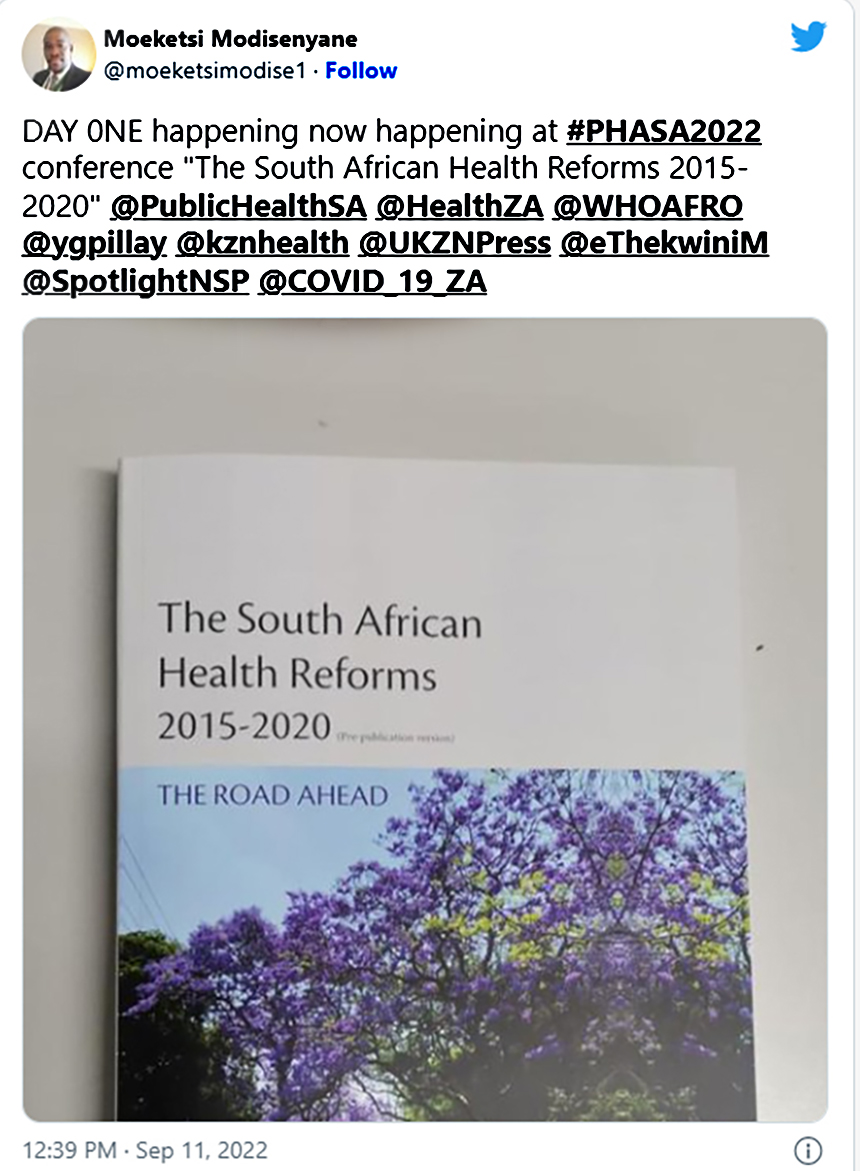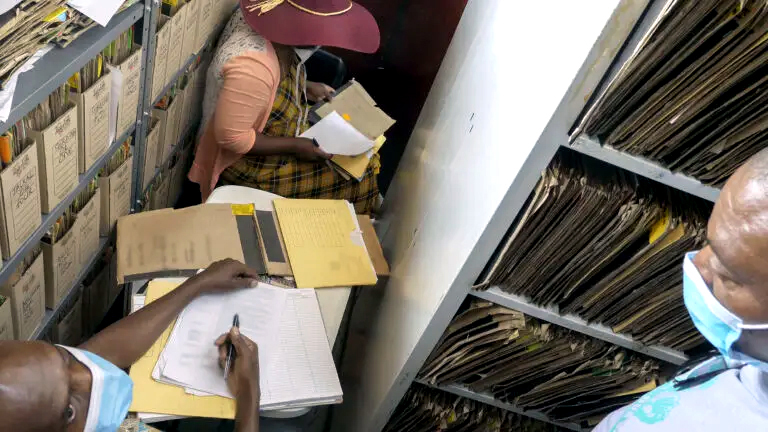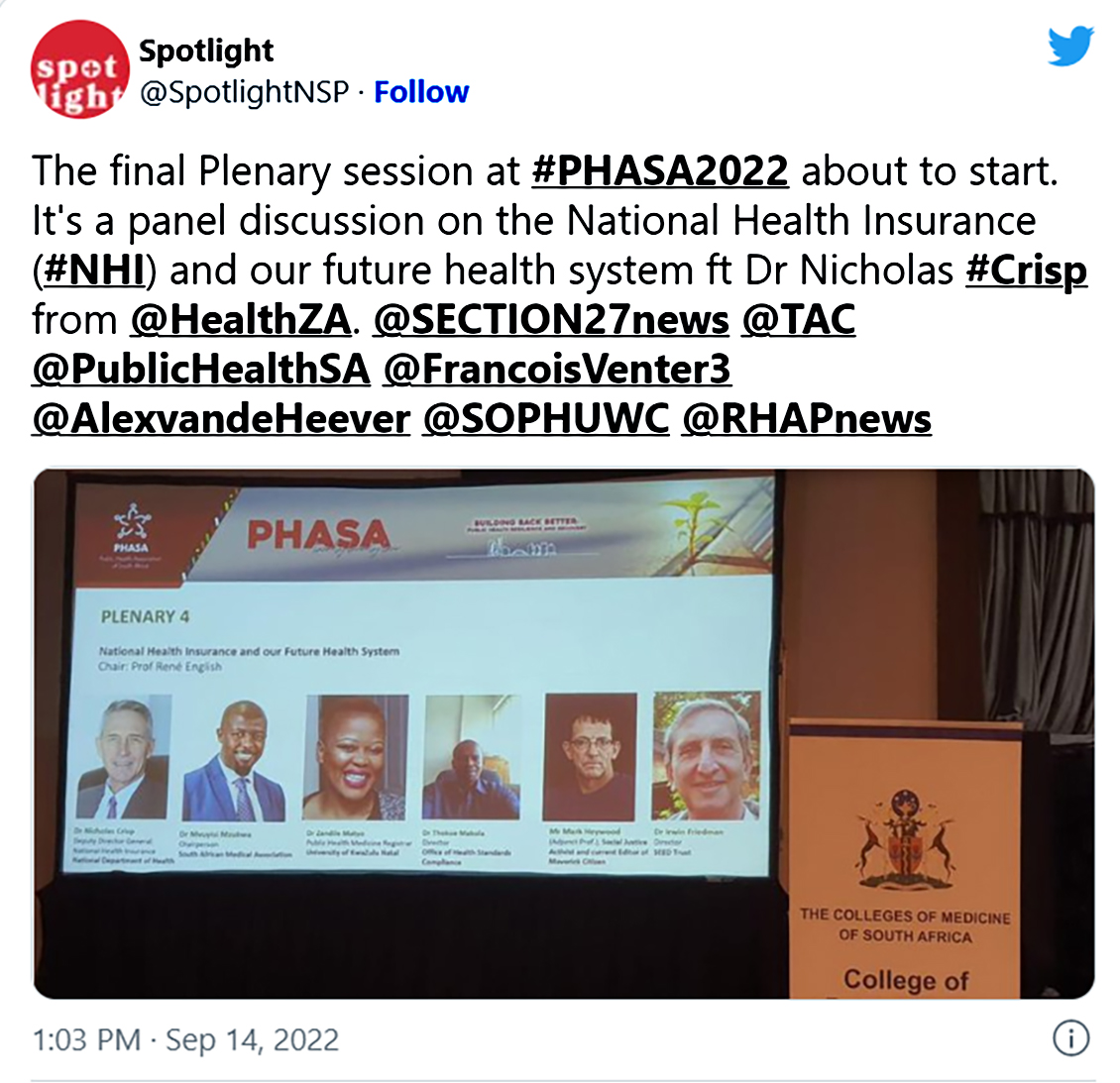SPOTLIGHT
Healthcare problems persist at ‘Ideal Clinics’, studies show

The Ideal Clinic programme has been one of the government’s key healthcare interventions in recent years. An extensive review of the initiative in Gauteng suggests that outcomes are mixed. Elri Voigt reports on findings from four studies on the programme presented at last week’s Public Health Association of South Africa conference in Durban.
Launched in 2013, the Ideal Clinic programme has been one of the Department of Health’s cornerstone interventions aimed at improving the quality of care at public healthcare facilities in South Africa. The programme (its full name is the Ideal Clinic Realisation and Management programme, ICRM) sets out to ensure that clinics have good infrastructure, adequate staff, adequate medicine and supplies and good administrative processes, among other things.
Now, four new studies together suggest that, while some progress has been made in recent years, the programme has had only a limited impact on the actual and perceived quality of care patients receive in Gauteng. In some cases, staff see Ideal Clinic certification as merely a box-ticking exercise. Three of the four studies were part of a larger rapid review study of the implementation of the programme in 45 Gauteng clinics from 2015.
The studies were presented last week at the 17th annual conference of the Public Health Association of South Africa in Durban, the theme for which was “Building Back Better: Public Health Resilience and Recovery”.
Impact on quality of care
One study asked clinic staff for their views on the ICRM programme and its impact on quality of care.
When assessed for ICRM compliance, a clinic can be classified as either not achieved, silver, gold or platinum. As quality improves clinics should progress from lower to higher classifications.

“We assessed the impact of the programme and identified factors that promote or hinder the implementation of the ICRM progression and maintenance of the ICRM certification,” said Idah Mokhele, one of the study authors. The researchers interviewed 335 healthcare workers from 45 clinics in Gauteng from February to August 2021.
The study identified several gaps in ICRM compliance. Only 20% of the clinics were using date and time-slot appointments, and some were experiencing stockouts of medicines. Eighty percent of the clinic staff interviewed had a general understanding of the ICRM programme, but there was no real difference in knowledge levels about the programme across the different ICRM certifications.
Participants were also asked about their confidence in being able to implement the programme. Confidence was highest among silver- and platinum-certified clinics and lowest among non-achieved clinics.
Those with low confidence were asked for reasons for this. Reasons cited included staffing capacity – not having enough staff or training and support to implement the programme – and poor clinic conditions such as inadequate infrastructure.

Patients queue at the Kwa-Thema CHC in Gauteng. (Photo: Matshepo Thlapane / Ritshidze)
One participant was quoted as saying: “The ICRM is just on paper, not perceived as instructions for operation. It’s seen by staff as a nuisance done for inspection purposes only.”
Read more in Daily Maverick: “Covid-19 blamed for shortcomings of Ideal Clinics in Free State”
Mohkele said: “More needs to be done in terms of not just investing in the programme itself but investing in our healthcare workers… that are supposed to serve people to be able to actually have the impact that it is supposed to have.”
Issues with going platinum
A smaller study, located within the bigger rapid review study, looked at how many clinics in Gauteng had progressed to platinum status since the programme’s implementation in 2015, and explored healthcare workers’ perceptions of platinum certification.
According to Nelly Jinga, who presented the findings, only three of the 44 clinics assessed for ICRM status in 2015 achieved platinum status. By 2020, 27 had achieved platinum status. The average time it took for clinics, from their initial certification to transition to platinum status, was two years.
A total of 138 staff members from the 27 platinum-certified clinics were interviewed. Of these, just more than one in three (35.8%) said the ICRM programme was not a success, citing poor clinic conditions in general, shortage of staff, shortage of equipment and poor infrastructure. Those who saw the programme as a success, according to Jinga, attributed it to implementation planning and preparedness and having clearly defined roles, as well as motivation to address structural and resource challenges at the clinics.
The finding that poor clinic conditions persist at some clinics despite having achieved platinum status, raised the question of whether Ideal Clinic status leads to improved operations or whether it is simply about ticking boxes. “I think it’s important to let the healthcare workers know that this is not about ticking boxes. It’s about the day-to-day quality that you provide to patients. So, it’s like a culture, not just that you get the highest certification,” Jinga said.
Impact on waiting times
One of the things that the ICRM was meant to address was long patient waiting times at clinics. Refiloe Cele, from Wits University, presented a subset study, part of the larger rapid review, that sought to assess how long patients were spending in clinics. It suggests that ICRM certification does reduce waiting times, although there are some interesting nuances.

The room where patient files are kept at Vlakfontein Clinic. (Photo: Rian Horn / Ritshidze)
At 45 clinics in Gauteng, 441 patients (about 10 per clinic) took part in a so-called time-in motion study. They were observed from the time they entered the clinic until they left, with time stamps recorded by research staff at each service station the patient visited.
Waiting times were calculated as the time difference between service stations. The total time spent at the clinic was also calculated and was separated into being over or under three hours, since the ICRM stipulates that patients should spend no more than three hours at a clinic and that no more than 10 minutes should be spent waiting to collect patient files.
The results showed that the majority of patients were spending three hours or less at clinics. While the aggregate waiting time, according to Cele, did not vary significantly by ICRM status, clinics classified as non-achieved had the longest waiting times.
Visit Daily Maverick’s home page for more news, analysis and investigations
The aggregate median waiting time for services in platinum-status clinics was 63 minutes, for gold 71 minutes, for silver 63 minutes and for non-achieved 112 minutes.
The average total time spent in platinum clinics was 90 minutes, in silver 68 minutes, in gold 102 minutes and in non-achieved 115 minutes. The average time spent waiting for a file was 13 minutes for platinum, 14 minutes for gold, 10 minutes for silver and 36 minutes for non-achieved clinics.
Two factors were associated with the total time spent at the clinic: arrival time and whether or not the clinic had a time-slot appointment system in place. Unsurprisingly, a time-slot appointment system rather than a day-slot system resulted in less time at the clinic.
To assess how the clinic waiting times compared with the private clinic standard (which, according to Cele, is one hour or less), they were also divided into times of more or less than one hour. This was because the aim of the ICRM programme, according to Cele, is to get public sector clinics ready for the implementation of National Health Insurance. The results were significantly different as the majority of patients spent more than an hour waiting at clinics.
Read more in Daily Maverick: “Crumbling Eastern Cape mud clinics ‘far from ideal’, say frustrated residents”
The researchers concluded that having ICRM accreditation does seem to reduce patient waiting times and total time spent in the facility, and that clinics could benefit from having a time-slot appointment system instead of a day appointment system. “Our main policy message here is that the government or the national Department of Health needs to actually strengthen and monitor the implementation of time-slot appointment systems, not day appointment systems,” Cele said.
Contradictory patient perceptions?
Mokhele also presented a study (part of the rapid review) that explored whether the perceived quality of care reported by patients matched their experiences in clinics.
Of the 1,788 patients interviewed from February to August 2021, 70.2% indicated a high perceived quality of care. As expected, patients at clinics with ICRM status were more likely to say that they were receiving quality care.
However, despite that high percentage, in qualitative open-ended interviews many patients had complaints about their experiences at the clinic – 31.7% of patients who reported high service quality had complaints, while 69.6% who reported receiving low to moderate quality care had complaints.

Complaints included long waiting times at clinics and inadequate facility infrastructure such as not having any outdoor shelter or enough seating in waiting rooms. Some wanted staff to be more professional and communicate better and also wanted more privacy when disclosing health information.
This, according to Mokhele, highlighted that there is a disconnect between the patient experience and their reported/perceived quality of care. This may be partly driven by patient gratitude for having free access to services and that expectations of services are quite low. “Meaning that they may overrate their quality of services if their expectations are low,” she says. DM/MC
This article was published by Spotlight – health journalism in the public interest.



















 Become an Insider
Become an Insider
Comments - Please login in order to comment.